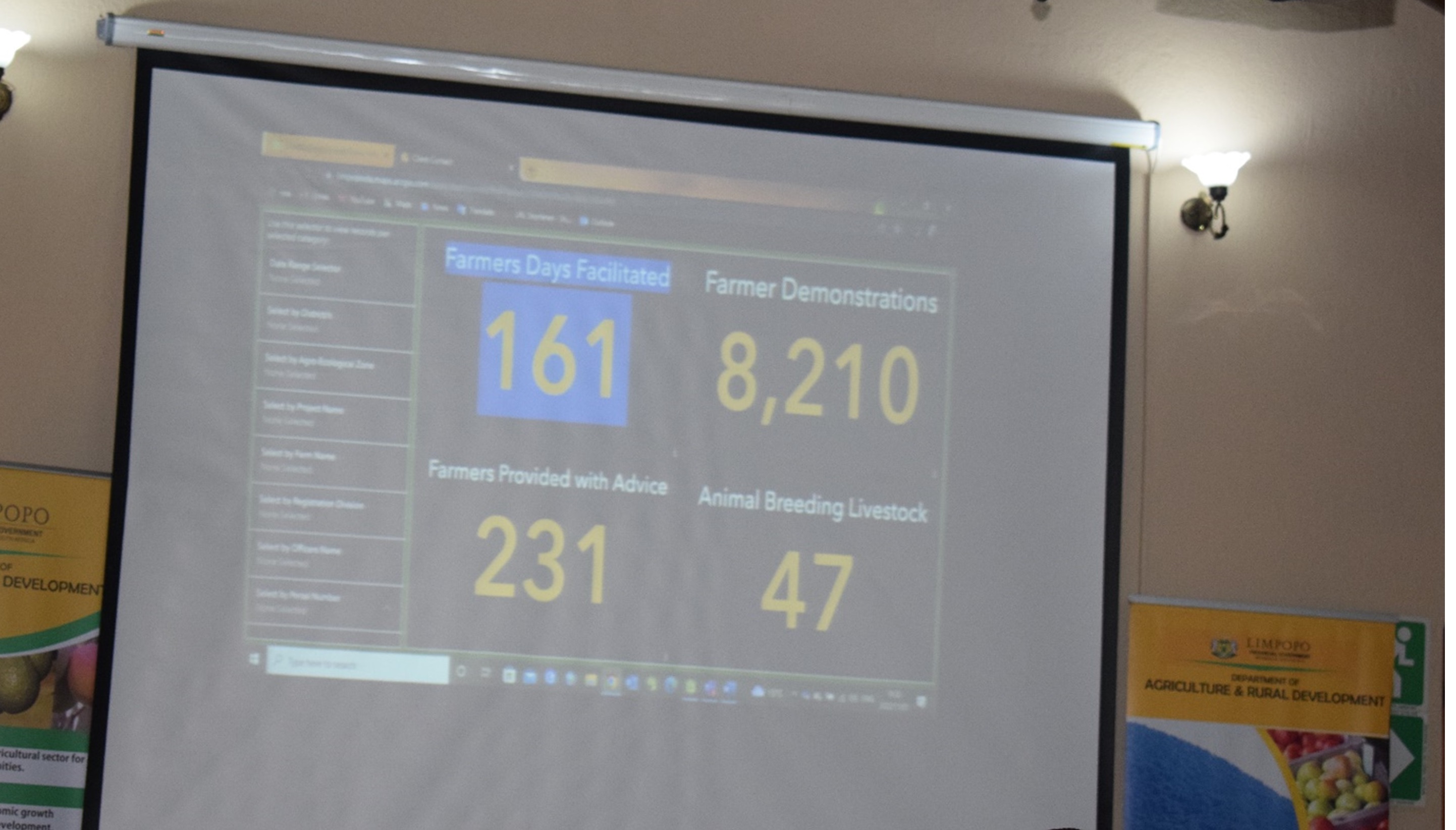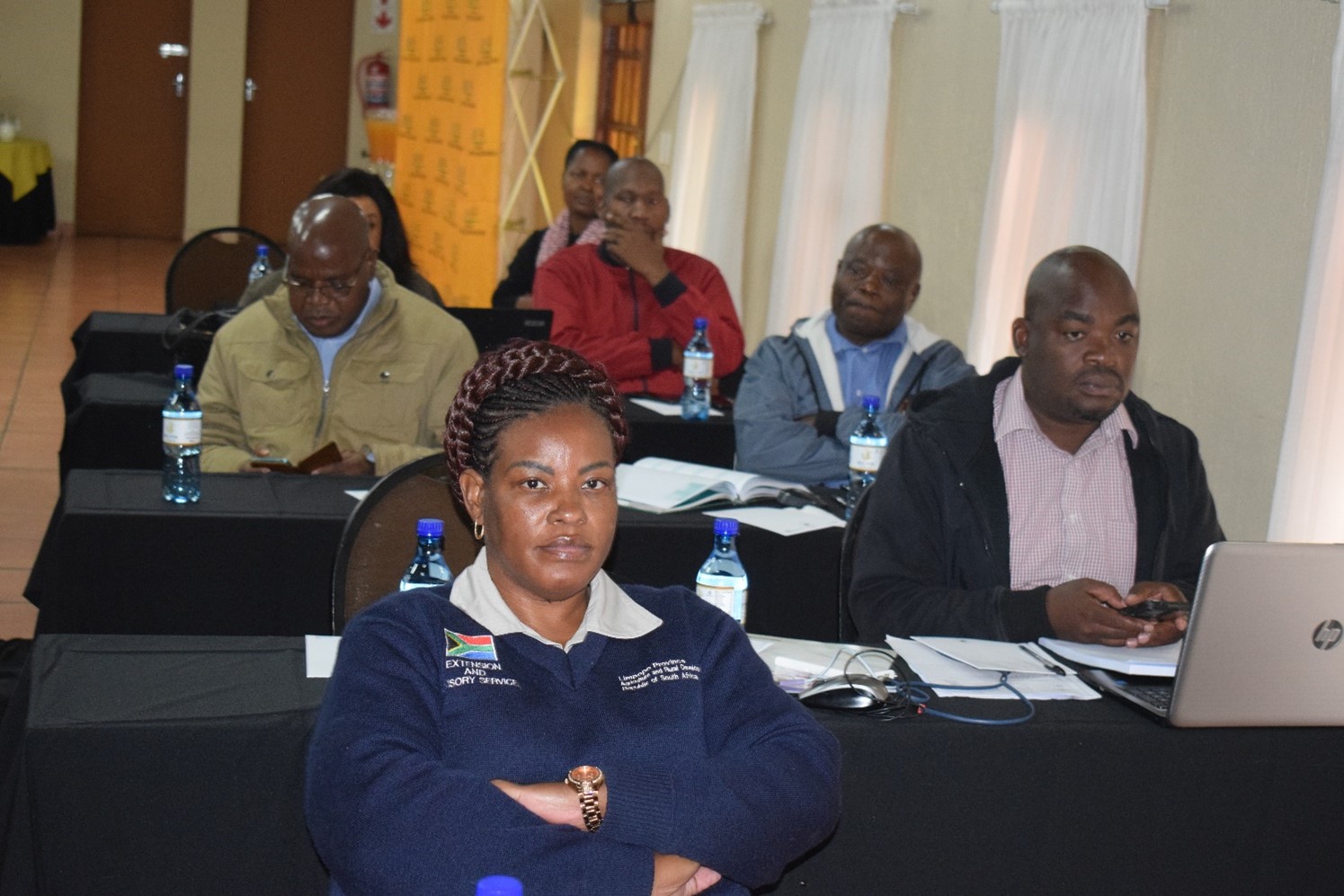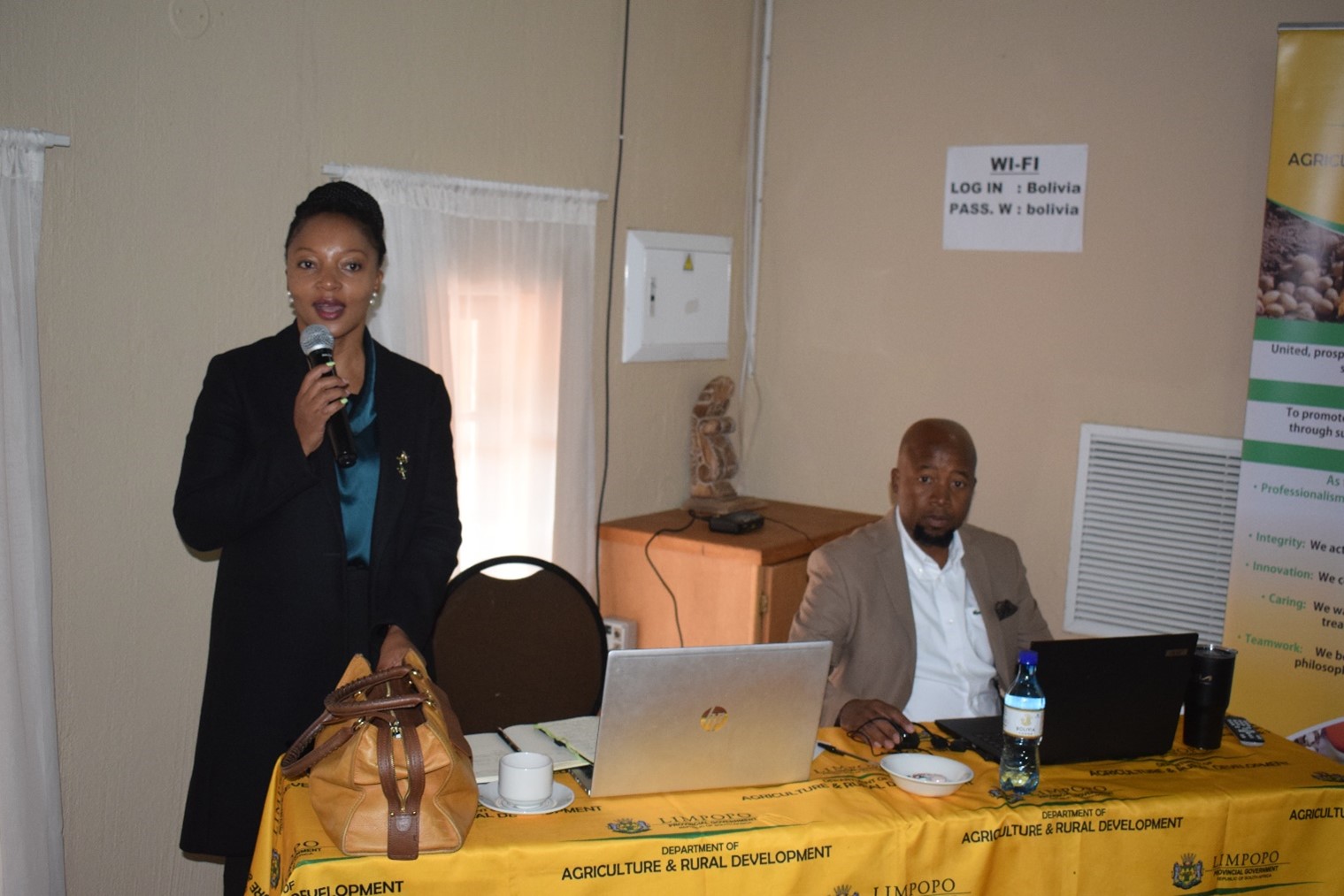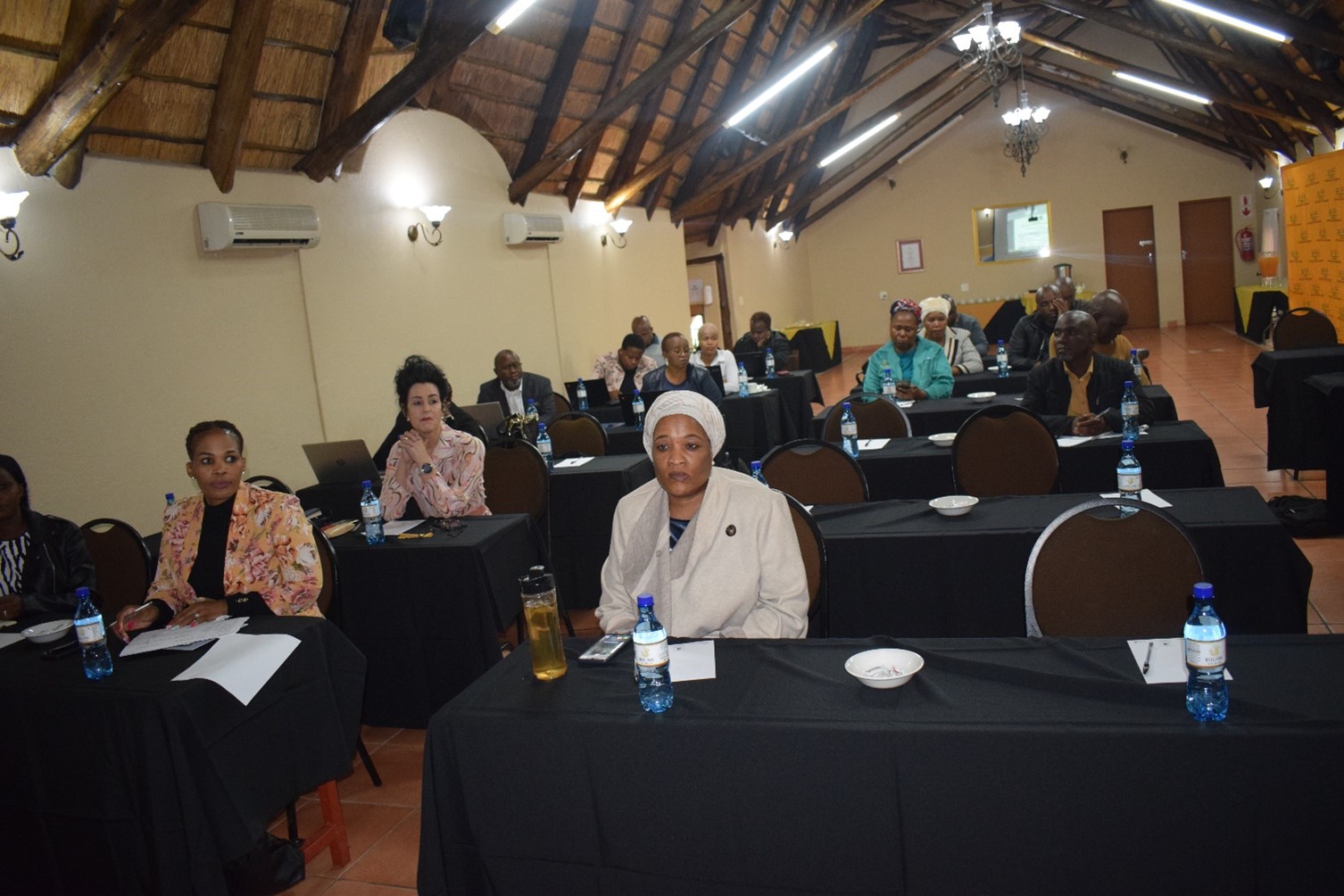By Matsobane Manaka

The dashboard is more time-efficient and is faster than manual reports
Limpopo Department of Agriculture and Rural Development (LDARD) has introduced a digital reporting system (Survey 123) in a bid to enter a digital transformation that will enhance service delivery.
The initiative started in December 2021 and went live on the 1 November 2022. During presentations held at Bolovia Lodge, the system already displayed over a thousand reports on the dashboard.
The collaboration among Geographical Information System, Extension and Advisory Services, and Monitoring and Evaluation (M&E) have made this possible. Training about the tool already provided to Extension Officers and Managers across all districts.

Director for Extension and Advisory Services Melidah Makwana admitted that the system resolved their challenge of reporting given the difficulty of reporting during Covid-19 where the use of papers was restricted. “It was created as part of the extension recovery plan pillar one in terms of visibility and accountability” she said.
Makwana said the implementation of digital reporting in phase one simplified reports such as Key Performance Indicators (KPI) about client contact form and animal activity form, in the last quarters where information is always easily accessible in any given time.
The use of dashboard provides visual presentations in a form of charts and graphs. It is more time-efficient and is faster than manual reports that are often time consuming and sometimes confusing due to hours of preparation and analysis.
Digital reporting is critical since it tracks performance, shows new trends and increase data accessibility and transparency.
In her presentation with reference to Quarter 1 and 2 digital reporting, Suthu Maphaga shed light that the tool minimises the cost such as coordinates, has improved confidence of the farmer with the department, one can monitor progress through the system and has good records and information management.

Suthu further pointed out the factors that affect the effectiveness of the system such as the misallocation of Means of Verifications (MOVs), attachment of wrong MOVs and MOVs within the borderline, capturing towards the end of the quarter and keeping of captured information on drafts with reference to Q 1 and Q 2, but said will guide the process in the next quarter going forward.
Director of Geographical Information System, Makopoi Nkopane said the implementation of phase 2 will incorporate Agri-business form, Natural Resource Management form and farmer register form. The Annual Performance Plan target, Operational Activities and financial part thereof can be linked into the system at a later stage.



